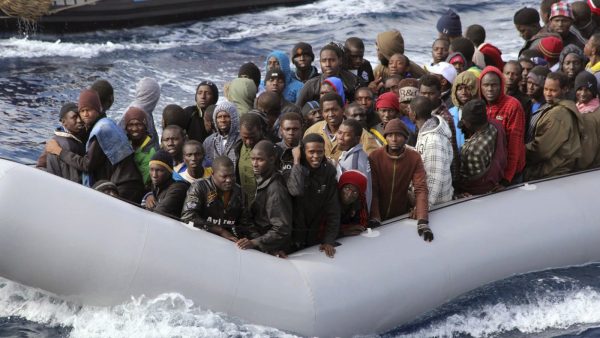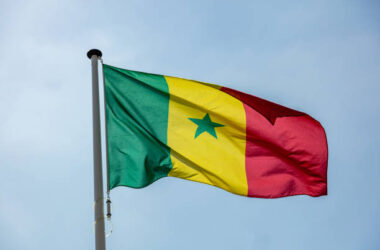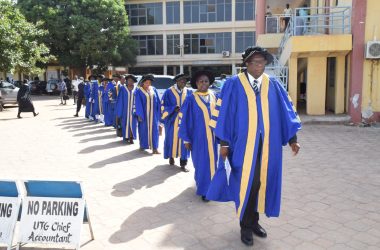
By Seedy S. Fofanah, Former Lecturer University of the Gambia
Many Gambians, mostly the younger men, hope to reach Europe, while others head for more prosperous countries in Africa in search of better life. Irrespective of their final destination, they have common aspirations: hopes of good jobs and better lives for themselves and the families they leave behind in the Gambia.
Bakary Marong, is one of those young Gambian migrants from Baddibu Saba, who made that trip two years ago. He was only 23 and had lost his father at an early age. His mother, a subsistence farmer, became the sole breadwinner of the family. When Bakary completed junior secondary school, he worked as an apprentice at Lamin NTC carpentry workshop to help his mother. But their living conditions worsened and Bakary, third among six children in his family felt the need to work elsewhere. “I wanted to go to Italy to be able to support my mother,” Bakary told me in our telephone conversation from his home in the town of Lamin Daranka village in the West Coast Region.
In 2015, with financial support from his brother, Bakary joined a group of 35 young men on a journey through the Sahara Desert to Libya, where they were to take a boat to Europe. However, hopping a crowded boat out of Libya on his third attempt to cross the Mediterranean, he was arrested in Libya by the Arabs and was living in a camp. He arrived empty-handed.
Bakary, now a street preacher in his 30s, tells me that he still hopes to make it to Europe one day, this time by some other route. Most Gambian migrants trying to reach Europe via Libya go through Burkina Faso to Agadez, Niger. From there, they join others people from West Africa and other areas that are fleeing conflict and persecution in West Africa.
With the services of middlemen, they travel on overloaded trucks in convoys and part of the way on foot through the Sahara Desert to the Borkou region near the Libyan border. It is a death-defying experience for most Gambian migrants trying to cross the Mediterranean Sea to Europe. Many die from exhaustion and dehydration on their way.
Bakary Marong is one of those Gambian migrants from Badibbu Saba village who recalls the inhuman traffickers and their extortionate demands for money. Also unforgettable was the sight of many lifeless bodies abandoned in the hot Saharan Desert.
“Some were leaning on the rocks, they looked like they were sleeping, others were buried in the dust,” he recalled.
“Three of my fellow Gambian travellers died on the way. They could not continue the walk. When that happens, we try to encourage them, but after a while you have to leave them, because if you are left behind you will lose your way, and you will soon die. These were people I knew, we travelled together from Banjul. I called their families later from Tripoli to inform them of their death.”

Bakary’s story is all too common in Baddibu Saba, with echoes across Gambia and other sub-Saharan African countries. During the 2011 Libyan crisis and the overthrow of Muammar Gaddafi, more than 2,000 Gambian migrants in Libya were evacuated, into the Gambia. The actual number of returnees, however, could be higher as some migrants managed to get out of Libya on their own before the crisis worsened. A majority of the returnees were sent back to the Gambia, from which they came, according to the International Organization for Migration (IOM), which supported the Gambian government in evacuating its stranded nationals in Libya.
For many families in Baddibu Saba, having a relative in Europe confers prestige and the prospect of remittances. Every household hopes to have someone in Europe. And there is also the expectation of financial support to the family back home, which helps to improve the family’s living conditions. But beneath the veil of perceived prestige are bigger national development issues. Poverty is one of the major reasons why people migrate in search of economic opportunities within West Africa and the sub-region.
Migration is not a new phenomenon in Africa. Around the 1970s and 1980s, most Gambian migrants moved to neighbouring countries like Nigeria and Sierra Leone and Côte d’Ivoire in search of diamond trading. In recent years, however, because of irregular migration, traveling without documentation and through unapproved routes, from sub-Saharan Africa towards Europe has substantially increased in recent days mostly among the youthful population.















Yea
It’s for survival. They have no jobs. Also diaspora Gambians give wrong impressions about the west. Anyway, an amazing article.